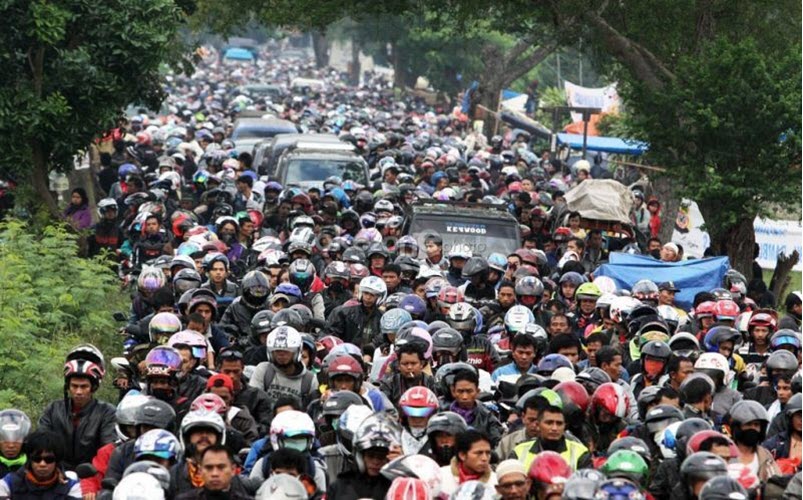Mudik and its Significance

“Mudik” is an Indonesian term that refers to the tradition of returning to one’s hometown or ancestral village during a holiday, typically during Idul Fitri (Eid al-Fitr) or other major holidays. It is a significant cultural practice in Indonesia, where millions of people living and working in cities travel back to their hometowns to celebrate and reunite with their families.
Mudik, also known as “Pulang Kampung” in Indonesian, is a significant cultural tradition in Indonesia. It involves the mass migration of people from urban areas back to their hometowns or ancestral villages during major holidays, primarily Idul Fitri (Eid al-Fitr).
During the mudik period, highways, airports, and other transportation hubs experience a surge in traffic as people make their way back to their hometowns. The journey can be long and challenging, often resulting in congested roads and crowded public transportation. Many people choose to travel by car, motorcycle, bus, or train to reach their destinations.
History of Mudik
The tradition of mudik has a long history in Indonesia and is deeply rooted in the cultural fabric of the country. It has its roots in rural communities and can be traced back to the time when people moved from villages to cities for work or education opportunities. Mudik served as a way for individuals to return to their hometowns and reunite with their families during special occasions.
Significance of Mudik
There are numerous significance of the occasion:
- Family Reunion: Mudik is primarily a time for family members to come together and celebrate important holidays, such as Idul Fitri, as a united family unit. It allows individuals working in cities to reconnect with their families, share meals, and spend quality time together.
- Cultural Connection: Mudik provides an opportunity for individuals to reconnect with their cultural heritage and participate in traditional customs and rituals specific to their hometowns. It allows them to engage in local festivities, visit religious sites, and partake in community celebrations.
- Religious Observance: For Muslims, mudik during Idul Fitri holds significant religious importance. It is a time of forgiveness, gratitude, and renewal of spiritual connections. It allows individuals to perform communal prayers and seek blessings from their elders.
- Economic Impact: Mudik has a substantial impact on the economy. The mass migration of people creates a surge in demand for transportation, accommodations, and consumer goods. Local businesses often experience increased sales during the mudik period.
Observer Voice is the one stop site for National, International news, Sports, Editor’s Choice, Art/culture contents, Quotes and much more. We also cover historical contents. Historical contents includes World History, Indian History, and what happened today. The website also covers Entertainment across the India and World.
Follow Us on Twitter, Instagram, Facebook, & LinkedIn

